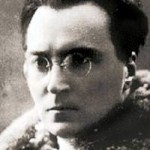- 15 Dec 2014 17:42
#14498918
The new Testament' s a silly joke. Its authors can't even agree on the most basic details. Where was Jesus conceived? Did he ever live in Egypt? Did Jesus institute the Eucharist at the beginning of his ministry or at the end. Was Jesus baptised by John the baptist? Who were his closest disciples? Who were the twelve Apostles? Was Jesus last supper a Paschal meal or not? Its like the most important person in your life dies and you can't remember whether your last meal with him was Christmas dinner or not. After he died did he appear to the eleven (not Judas) as in Acts or to the Twelve as in Paul's letter?
If Jesus did exist he must have been the most unmemorable bland nobody that ever existed.
If Jesus did exist he must have been the most unmemorable bland nobody that ever existed.
Progressives lie scattered on Woke's highway, Diverse ghosts crowd the young child's fragile eggshell mind.
















